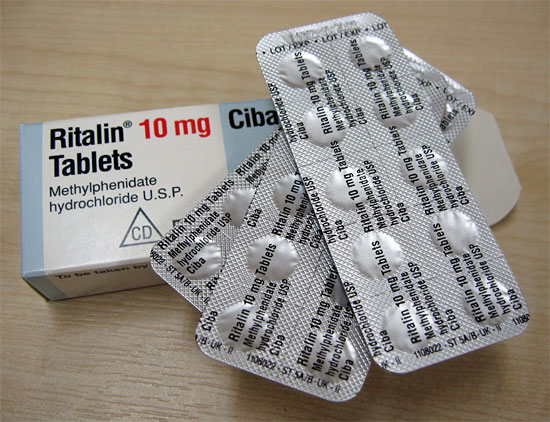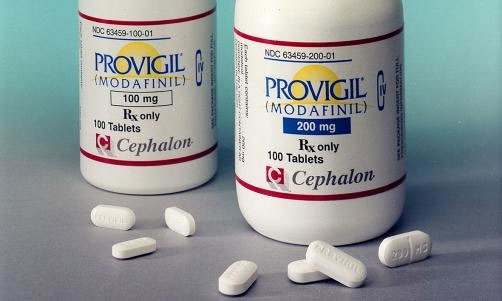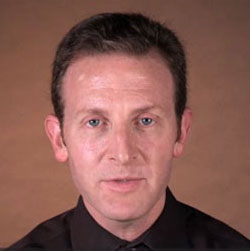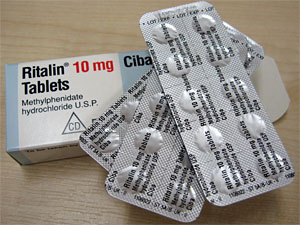
New Study Finds Performance-Enhancing Drugs for Chess
By Dylan Loeb McClain
Since 1999, the World Chess Federation, which is also as known as FIDE, has had scorn regularly heaped on it for having a drug testing policy and for testing top players at major events. The federation did not put the policy in place because it believed it had a drug problem, but to satisfy the International Olympic Committee, which requires that all sports that it recognizes have such a program.
The idea that chess might one day be in the Olympics continues to seem like a pipe-dream, but it turns out that testing for drugs may have been a prescient move. A landmark study published in European Neuropsychopharmacology, the official publication of the European College of Neuropsychopharmacology, has found that there are two prescription drugs that seem to enhance chess-playing ability.
Abstract: Methylphenidate, modafinil, and caffeine for cognitive enhancement in chess: A double-blind, randomised controlled trial
Stimulants and caffeine have been proposed for cognitive enhancement by healthy subjects. This study investigated whether performance in chess – a competitive mind game requiring highly complex cognitive skills – can be enhanced by methylphenidate, modafinil or caffeine. In a phase IV, randomized, double-blind, placebo-controlled trial, 39 male chess players received 2×200 mg modafinil, 2×20 mg methylphenidate, and 2×200 mg caffeine or placebo in a 4×4 crossover design. They played twenty 15-minute games during two sessions against a chess program (Fritz 12; adapted to players’ strength) and completed several neuropsychological tests. Marked substance effects were observed since all three substances significantly increased average reflection time per game compared to placebo resulting in a significantly increased number of games lost on time with all three treatments. Treatment effects on chess performance were not seen if all games (n=3059) were analysed. Only when controlling for game duration as well as when excluding those games lost on time, both modafinil and methylphenidate enhanced chess performance as demonstrated by significantly higher scores in the remaining 2876 games compared to placebo. In conjunction with results from neuropsychological testing we conclude that modifying effects of stimulants on complex cognitive tasks may in particular result from more reflective decision making processes. When not under time pressure, such effects may result in enhanced performance. Yet, under time constraints more reflective decision making may not improve or even have detrimental effects on complex task performance. |
The drugs are methylphenidate, which is most commonly marketed as Ritalin (by Novartis), and modafinil, which is sold as Alertec, Modavigil and Provigil. The study also measured the effects of caffeine and found, not surprisingly, that it also had an ameliorative impact.
When adjusting for an unexpected side-effect of the drugs on decision-making behavior – paradoxically, that they made the subjects play slower — the study found modafinil improved the players’ performances by an average of 15 percent, methylphenidate by 13 percent, and caffeine by around 9 percent.
The results would seem to pose an immediate challenge for FIDE and for tournament organizers around the world. Cheating by using high-powered computers has become a problem in recent years, with even some top-level players being caught. Now, if the results of this study are borne out, players could use a chemical means that is invisible to the eye to boost their performance.
The new study, which was conducted by 13 professors and researchers from several German universities and the University of Stockholm, is titled, “Methylphenidate, modafinil, and caffeine for cognitive enhancement in chess: A double-blind, randomized controlled trial.”
Methylphenidate and modafinil have been around for years – in the case of methylphenidate, since the early 1960s. Both are stimulants. Methylphenidate is commonly used to treat attention deficit hyperactivity disorder (ADHD), while modafinil is often used for narcolepsy and other sleep-related disorders.
Dr. Klaus Lieb, a professor of psychiatry and psychotherapy at the University of Mainz in Germany, and one of the study’s main authors, said that the researchers wanted to see whether people who already were performing at a high level mentally could have their performance enhanced through chemicals.

“There are lots of data showing that a subject in a sleep-deficient state or exhausted people do profit from an enhancer,” Dr. Lieb said. “We were really interested to show whether it is possible to show an enhancement effect, or a hyper performance effect in subjects who already perform at the top level of their cognitive performance.”
Dr. Lieb said that the researchers went into the study with the expectation that the stimulants would not show much benefit. “We primarily thought that it is not possible to enhance high cognitive tasks and were astonished to find such results,” he said.
Chess players were chosen as the subjects in part because several of the researchers play. (Harold Ballo, who works with Dr. Lieb, has a FIDE rating of 1981.) In addition, the fact that computers could be used as sparring partners and their strengths calibrated to equal that of the subjects made chess an ideal laboratory.
The study recruited 39 rated players (40 when it began, but one dropped out). Each player was given a series of neuropsychological tests and questionnaires and then asked to play against computers running the chess-playing program Fritz 12. In their games, the players had 15 minutes total for their moves, the computers had six. Before each set of 10 games, the players were given either methylphenidate, modafinil, caffeine, or a placebo. In total, 3,059 games were played over a several-week period.
The results contained one surprise: The amount of time that the players took in their games when they were on the stimulants increased, so much so that more games were lost on time when players were taking the drugs than when they had taken a placebo. That skewed the results. When those losses were factored out, leaving 2,876 games (or data points) the benefits of the drugs became clearer.
The study’s conclusion addressed the additional thinking time as a critical component of the effect of the stimulants. The authors wrote, “This suggests that neuroenhancers do not enhance the quality of thinking and decision-making per time unit but improve the players’ ability or willingness to spend more time on a decision and hence to perform more thorough calculations.”
Dr. Lieb said that there are two caveats to the results. One is that they must be replicated by additional studies before it would be possible to say with some degree of certainty that the drugs enhance performance.
The second was that the study contained a flaw: the games were too quick, creating the problem of time-forfeits in some games. Additional studies would need to have the subjects play longer games.

That also suggests that if the drugs do turn out to definitely be performance-enhancers, they would be most useful in classical, or slow, tournament games rather than in rapid or particularly blitz games.
It is possible that some players already use these drugs. As part of the research for the new study, Dr. Lieb said that he and his colleagues contacted 1,500 players in the German federation and had them fill out surveys. Based on those surveys, he said that they had some idea of the prevalence of the two drugs among the chess-playing population. Dr. Lieb would not reveal the results as he said they hope to interest another scientific journal in publishing them.
Dr. Lieb cautioned that while the drugs seem to boost performance, taking them was not a good idea. “Their use may cause severe side effects and dependency, especially with repeated use,” he said.
Dr. Lieb was clear on one effect he thought the research should have. He said, “We recommend to introduce rigorous doping controls in chess competitions.”
 |
The above article is reproduced from the news page of WorldChess and reproduced with the kind permission of the author.
Dylan Loeb McClain is a journalist with more than 25 years of experience. He was a staff editor for The New York Times for 18 years and wrote the paper’s chess column from 2006 to 2014. He is now editor-in-chief of WorldChess.com. He is a FIDE master as well. |



























